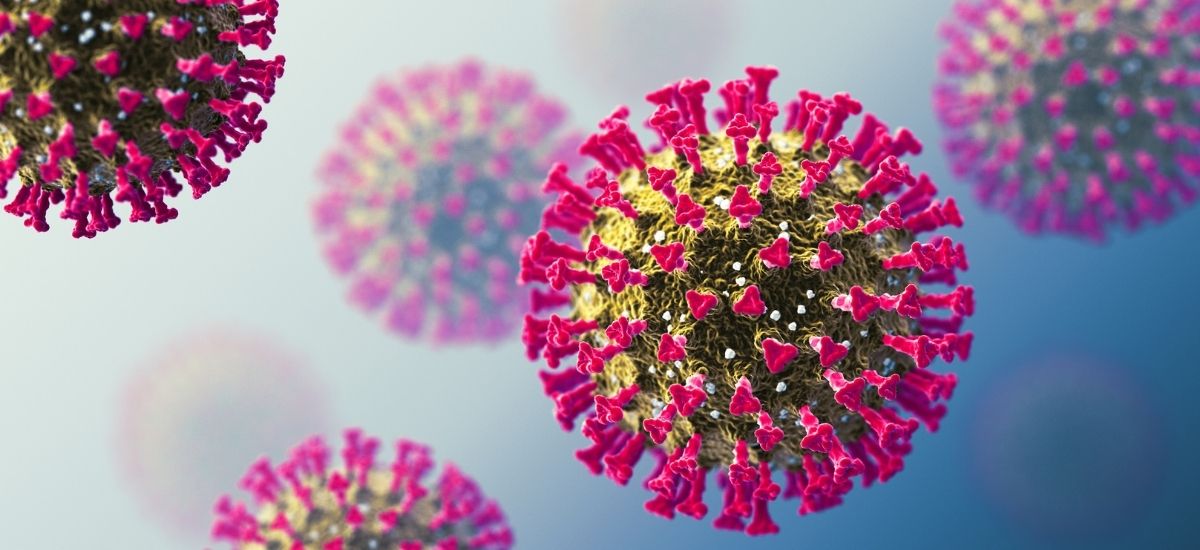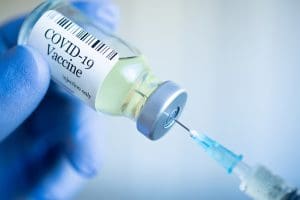
The emergence in 2019 of a newly discovered coronavirus known as severe acute respiratory syndrome coronavirus 2 (SARS-CoV-2) [1] and its subsequent worldwide spread causing the COVID-19 pandemic has left many different groups of people scrambling for answers on health and safety concerns. The potential effects of COVID-19 in individuals with MS, and the additional risks that may be conferred by the immunosuppressive therapies routinely used in MS treatment, naturally formed the focus of a hot topics session at the ECTRIMS 2021 Annual Congress [2]. Registry data have led the drive to understand how COVID-19 might affect individuals with MS, however, knowledge gaps remain.
As we approach World MS Day on 30 May, it is important to consider some of the learnings around the potential impact of COVID-19 on individuals with MS and their treatment, and examine practical aspects underlying vaccination.
COVID-19 in individuals with MS
The Italian Study Group on COVID-19 infection in multiple sclerosis [3] is a programme developed by a group of neurologists with the aim of understanding the most pressing needs of individuals with MS during the COVID-19 pandemic. Data collected from 232 patients from 38 centres in Italy by early April 2020 showed that the majority of patients (96%) had mild COVID-19 disease, and endorsed guidelines on the management of MS during the COVID-19 pandemic [4], which recommended continuation of disease-modifying treatment (DMT) together with an assessment of the risks and benefits of commencing any new treatment. The findings from Italy are echoed by those from the Dutch MS
Taskforce of the Netherlands Society of Neurology [5] who demonstrated no apparent difference in disease-modifying treatment use and COVID-19 disease course among individuals with MS. In addition, an Austrian study [6] noted that, of 1,931 individuals with MS, only 0.9% were at high or very high risk of COVID-19 mortality, with the vast majority of those who were at risk not receiving any DMT. The findings from these studies are consistent with those of a large systematic review [7] which examined data from 4,310 individuals with MS and suspected or confirmed COVID-19 published in 87 studies. This review concluded that MS did not significantly increase the risk of mortality from COVID-19, with the highest hospitalisation and mortality rates observed in individuals not receiving DMTs (42.9% and 8.4%, respectively).
 Treating MS during the COVID-19 pandemic
Treating MS during the COVID-19 pandemic
The observed lack of correlation between MS and COVID-19-associated mortality validates the recommendation that individuals should not discontinue DMT. However, there may still be a need to modify management strategies during this global pandemic. A survey study conducted in Spain and the USA [8] evaluated risk factors for COVID-19 susceptibility and the impact of the pandemic on healthcare delivery to individuals with MS. The multivariate analysis conducted in this study noted that individuals who were younger, had to work on site, had a lower education level and who resided in socioeconomically disadvantaged areas may be at higher exposure risk for COVID-19, making them potential targets for educational interventions to reduce exposure and the allied risk of disruption to MS care. Similarly, a study examining behavioural practices of individuals with MS [9] and a second examining challenges faced by individuals with MS [10] during the COVID-19 pandemic both noted patient concerns that could potentially impact treatment adherence and hospital attendance for routine appointments. Moreover, although continuation of treatment with the majority of DMTs was not found to increase the risk of severe COVID-19 infection, treatment with anti-CD20 therapies [11], such as ocrelizumab or rituximab [12] has been shown to be associated with an increased risk of hospitalisation and death in individuals with MS.
 COVID-19 vaccination in individuals with MS
COVID-19 vaccination in individuals with MS
Since its widespread introduction, COVID-19 vaccination [13] has been recommended for individuals with MS and shown to be safe, with no increased risk of relapse activity. However, evidence has emerged that treatment with some DMTs may attenuate the serological response to COVID-19 vaccination [14] in individuals with MS. In particular, anti-CD20 treatment and fingolimod [15] have been observed to result in a reduced humoral response to mRNA-based SARS-CoV-2 vaccines. This has led to reports of breakthrough cases of COVID-19 [16] in vaccinated individuals with MS, including a case report of severe breakthrough COVID-19 following booster vaccination [17] of an individual with MS who was receiving treatment with ocrelizumab. Such findings have resulted in the recommendation that it may be necessary to coordinate vaccine timing with dosing regimens of DMTs [18] for some therapies in order to optimise vaccine effectiveness in individuals with MS.
Promoting continued advances in research
ECTRIMS welcomes this increased knowledge around the role of COVID-19 in individuals with MS and applauds the efforts of the scientific community to constantly improve our understanding of how best to treat MS while working under the pressures of a global pandemic. We remain optimistic that ongoing research will bring with it greater advances to further improve our knowledge of how to best care for individuals with MS. Given the importance of this topic, further research into COVID-19 and MS are sure to feature prominently at this year’s annual ECTRIMS congress to be held in Amsterdam between 26th and 28th October.
***
ECTRIMS Insights articles are produced with an intent of being a neutral source of information sharing and objective analysis for the MS and neuroscience community. Unless otherwise stated, cited information in our articles does equivocate official endorsement from ECTRIMS.
***
REFERENCES
[1] Rao HCY, et al. J Med Virol. 2020;1–5.
[2] ECTRIMS 2021 Annual Congress Highlights. Available at: https://ectrims.staging.theformery.com/annual-congress-highlights/
[3] Sormani MP; Italian Study Group on COVID-19 infection in multiple sclerosis. Lancet Neurol. 2020;19(6):481–482.
[4] Multiple Sclerosis International Federation. 2020. Available at: http://www.msif.org/wpcontent/uploads/2020/03/MSIF-Globaladvice-on-COVID-19-for-people-with-MS.docx-1.pdf.
[5] Loonstra FC, et al. Mult Scler. 2020;26(10):1256–1260.
[6] Bsteh G, et al. Eur J Neurol. 2021;28(10):3369–3374.
[7] Barzegar M, et al. Neurol Neuroimmunol Neuroinflamm. 2021;8(4):e1001.
[8] Moss BP, et al. Mult Scler. 2020;26(10):1163–1171.
[9] Alnajashi H, et al. PLoS One. 2020;15(10):e0241103.
[10] Baba C, et al. Neurol Clin Neurosci. 2021:10.1111/ncn3.12561.
[11] Fragoso YD, et al. Mult Scler Relat Disord. 2021;55:103173.
[12] Sormani MP, et al. Ann Neurol. 2021;89(4):780–789.
[13] Achiron A, et al. Mult Scler. 2021;27(6):864–870.
[14] Tallantyre EC, et al. Ann Neurol. 2022;91(1):89–100.
[15] Sormani MP, et al. EBioMedicine. 2021;72:103581.
[16] Sormani MP, et al. EBioMedicine 2022;80:104042.
[17] van Kempen ZLE, et al. Neuroimmunology Reports 2022;2:100072.
[18] Kelly H, et al. J Neuroimmunol. 2021;356:577599.